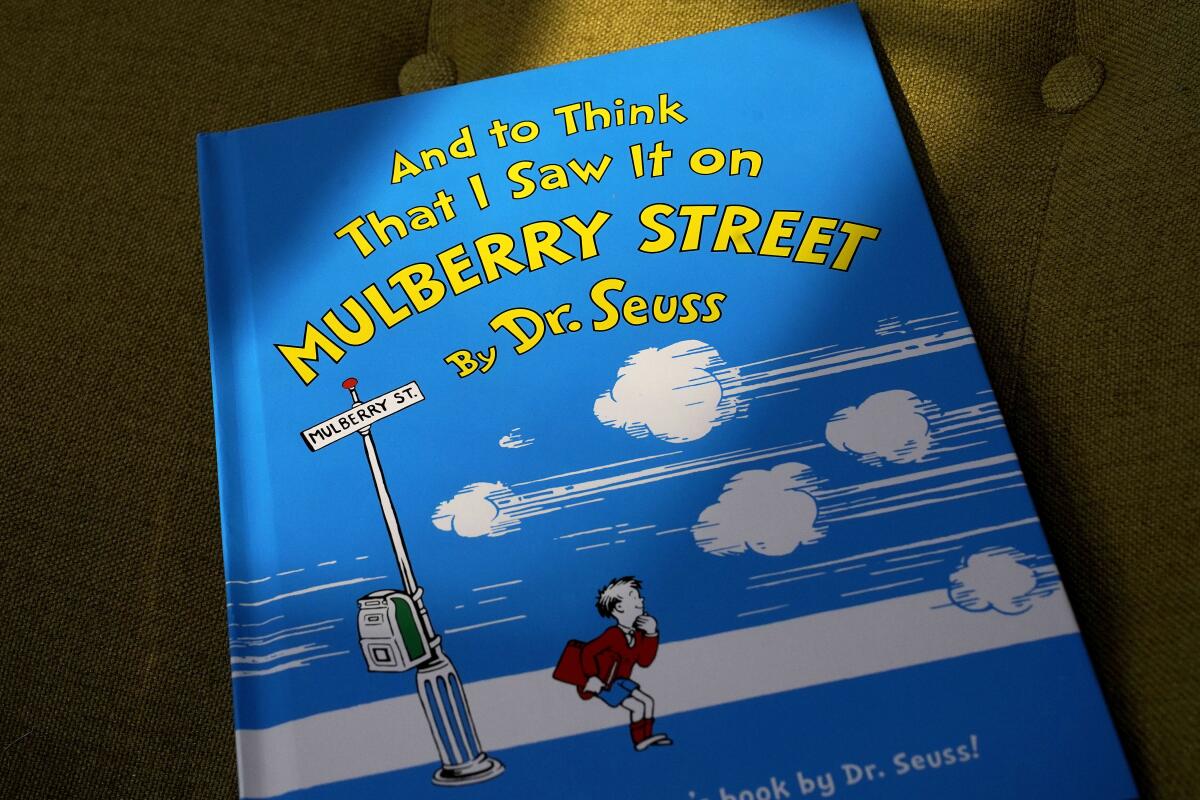Dr. Seuss was part Horton the elephant, part Grinch

- Share via
Read Across America Day was celebrated Tuesday, as it is every year, on the birthday of the late Theodore Geisel, better known as Dr. Seuss. Yet neither the National Education Assn., which launched Read Across America Day, nor President Biden mentioned Geisel in their official proclamations this week.
Not coincidentally, that was the same day Dr. Seuss Enterprises, which preserves the author’s legacy, announced that it would cease publication of six of Geisel’s books because of racist wording and imagery, including the first book under his pen name, “And to Think That I Saw It on Mulberry Street.” The offending illustrations, which Geisel drew, included images of Chinese people in coolie hats and Black Africans with hoops through their noses.
The master of anapestic tetrameter for the early-reader set is under fire these days not just for problematic material in his children’s books, but for advertisements in his earlier years that contained even crueler stereotypes of minorities. And in his other children’s books, human characters were almost always white. As a result, various groups have called for downgrading his prominence as a children’s author.
Geisel also produced a body of work during the World War II era that was decidedly anti-isolationist and anti-racist — while at the same time showing terrible stereotypes of Japanese people.
It’s tempting in these days of extreme reactions to reject an artist’s entire oeuvre over shortcomings as a person or as an artist — and for a backlash to be mounted against that rejection, claiming that this is so-called cancel culture attempting to limit speech.
But whatever Geisel’s strengths and shortcomings were in his work outside of children’s literature, the books themselves should stand and fall on their own. And most of them stand.
At the same time, Dr. Seuss Enterprises was right to stop publication of the six books. A great deal of noncontemporary literature involves plotting and characters that would not be accepted in modern works. They remain classics in many cases because we as adults understand the context. But the standard should be different when we’re talking about the kind of rhyming, colorfully illustrated books that very young children have read to them. They are exposed over and over — because as any parent knows, children want their favorite books repeated ad infinitum — to racist, inaccurate images and lilting wording that, for example, describes people with eyes “at a slant.” If the books can’t be fixed, they no longer deserve to be in print.
It’s heartening to see a new generation of picture books expose children to a more diverse and inclusive sensibility. But let’s not forget that Dr. Seuss was, in general, a treasure, and it’s saddening to see Geisel’s name left out of a day that was timed to honor his legacy. Books still matter. Fun still matters. At his best, which was often, Dr. Seuss combined them.
More to Read
A cure for the common opinion
Get thought-provoking perspectives with our weekly newsletter.
You may occasionally receive promotional content from the Los Angeles Times.









